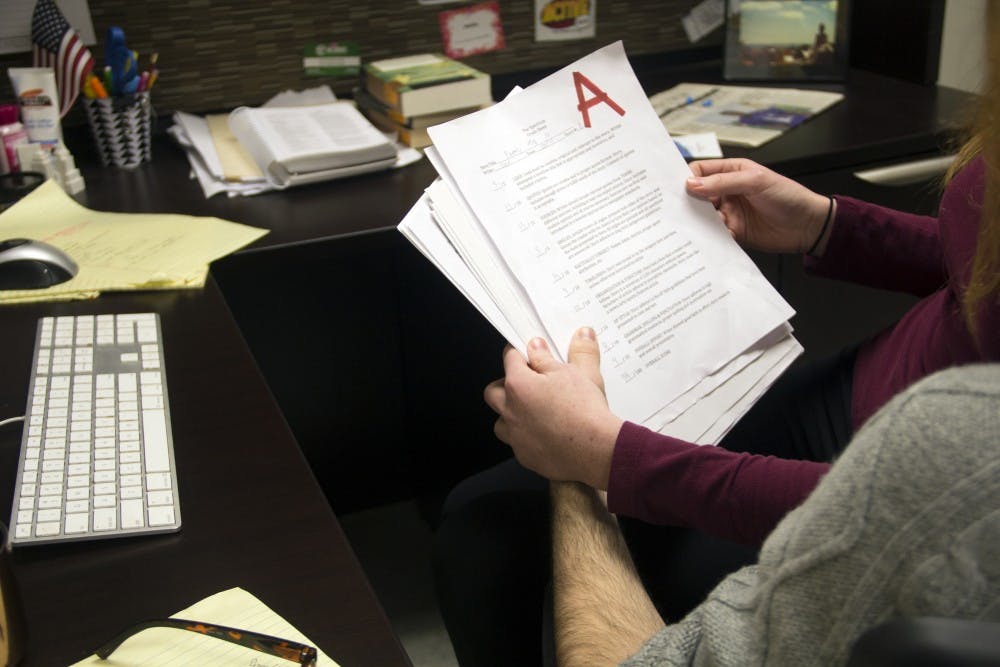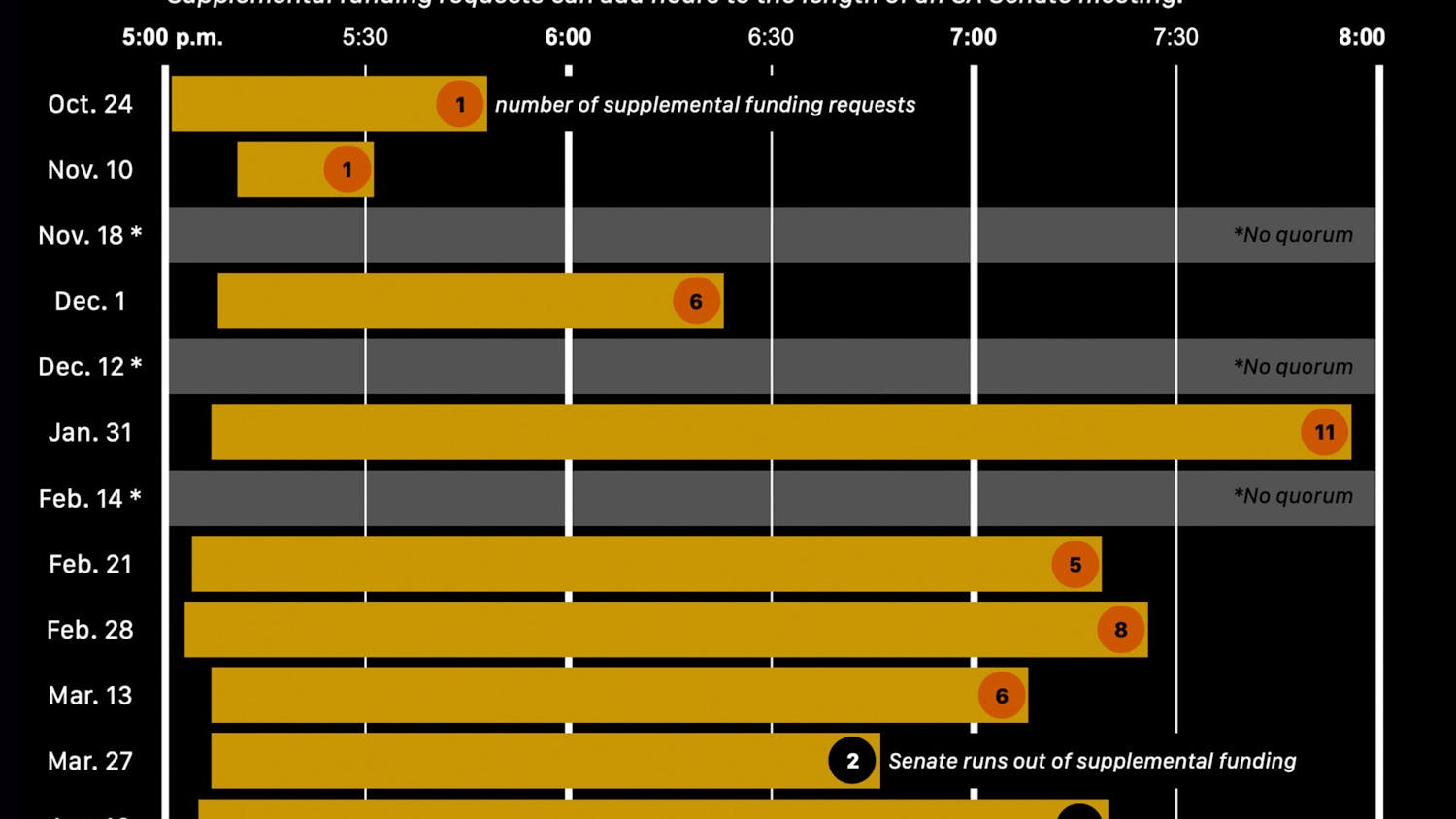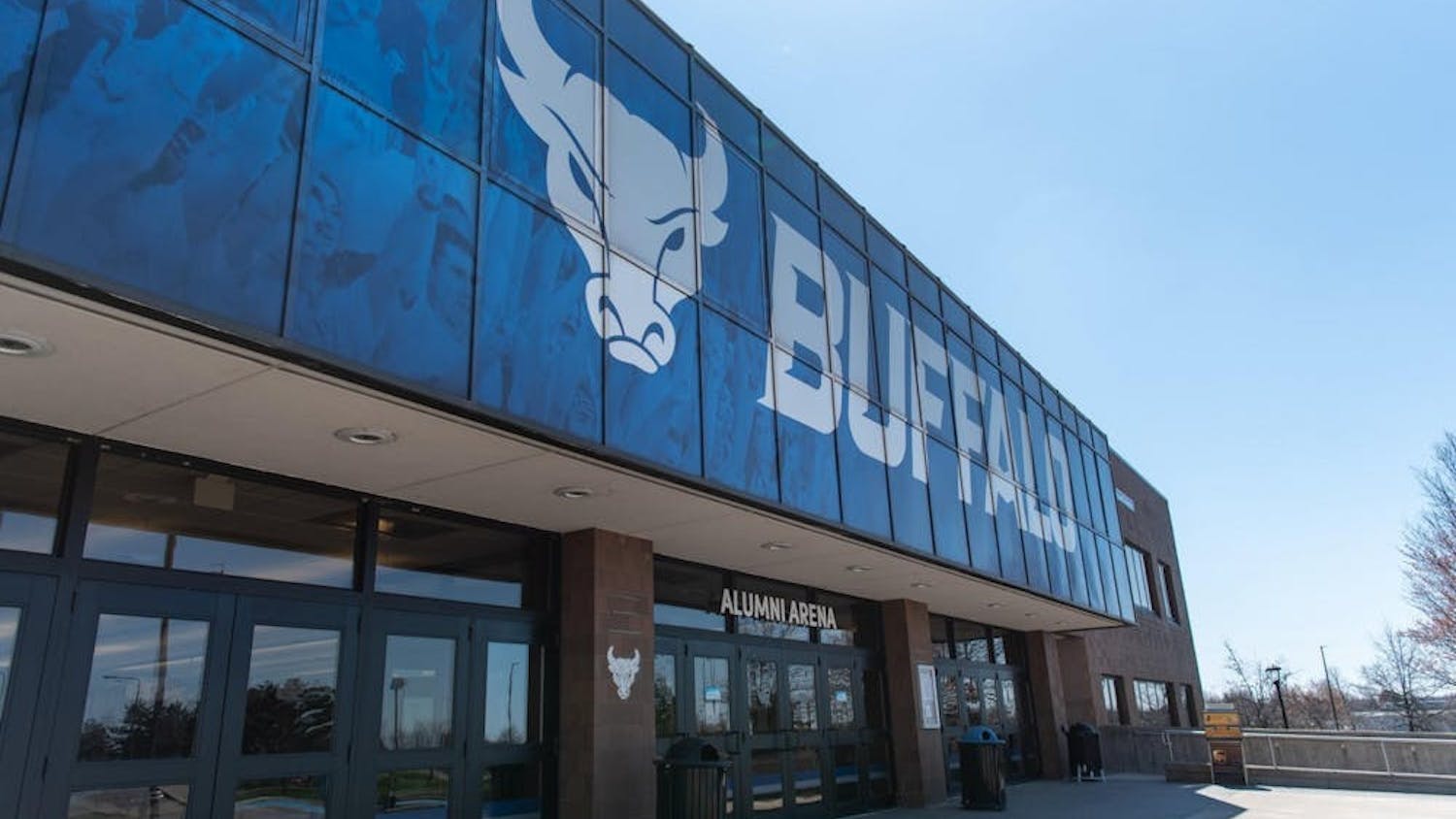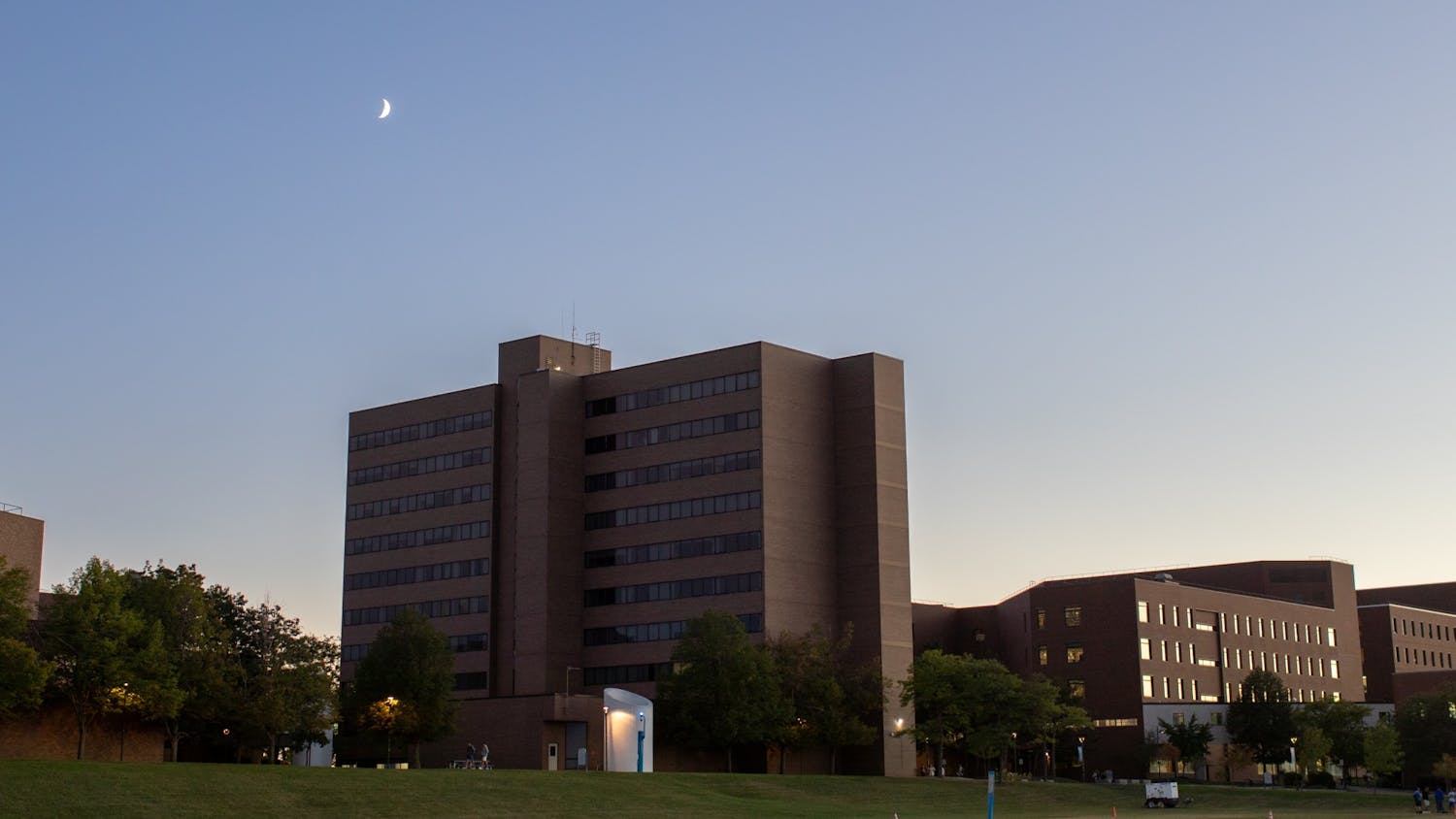Hours after finishing his final, Tyler Smith* was at a party at the Villas on Rensch, celebrating the semester’s end with all his classmates. It had become a tradition throughout the course; after each grueling anatomy exam, the group would go out together to de-stress.
But this time, the guest list included a teaching assistant he’d been eyeing all semester.
The two began the night flirting and ended it at another friend’s house, having sex on a couch in the basement.
“It just kind of happened,” Smith, a junior exercise science major said. “The thought occurred to me like, ‘Oh, that TA’s hot. I’d bang her.’ She was cute and smart. Every time I had a question, she helped me.”
The two never talked again after that night. The TA, who has since graduated from UB, wasn’t involved in the grading for the course, and Smith knew it was unlikely the two would see each other again. It was nothing more than a “fun little party story,” he said. No big deal.
More often, however, relationships between students and their instructors don’t end as a fun story to tell at parties. And while some schools like Harvard University have policies flatly prohibiting relationships between undergraduates and faculty members, a few factors have kept UB from adapting a hard line policy on the matter. The result is a professor or TA can have sex with an undergraduate student, as long as he or she is not a current student and isn’t likely to be.
UB’s policy toward sexual conduct and relationships is guided broadly by its nepotism policy and the faculty code of conduct, which prohibits “nonprofessional” relationships between students and faculty members that have any kind of “evaluative” element like grading or advising.
The line between a nonprofessional and professional relationship has created a degree of ambiguity schools are constantly grappling with, said Sharon Nolan-Weiss, director of UB’s Office of Equity, Diversity and Inclusion and the university’s Title IX coordinator. Although UB has no formal plans to reevaluate its policy, there have been a number of informal “exploratory talks” among administrators in recent months that may result in some formal reassessment, she said.
UB’s policy on faculty-student relationships has come a long way since Nolan-Weiss first arrived at UB in 2001, she said. Before 2008, the strongest policy on the books was an “alert for instructional staff”: a clause in the faculty-staff handbook warning instructional staff if they were in a relationship with a power differential, they may be “subject to a complaint later.”
“I know people in my office hated this policy but at that time the climate was such that that was the strongest thing we could get through,” Nolan-Weiss said.
In 2008, the faculty code of conduct included a stronger statement that said faculty are not supposed to enter into nonprofessional relationships with students, particularly sexual ones. In 2015, the nepotism policy broadened the code to include all relationships that could result in a conflict of interest, real or perceived.
Although the nepotism policy itself may be straightforward, gray areas remain.
There are few “hard” rules when it comes to its application. For instance, Nolan-Weiss advises faculty not to add students on Facebook, but that in and of itself isn’t necessarily “nonprofessional.” The same goes for socializing. Particularly at the graduate level, professors may want to have students over for dinner and drinks, and that too, doesn’t necessarily reach an inappropriate threshold, she said.
“If the [socializing is] happening repeatedly and they’re forming a friendship or it’s something where they’re no longer neutral, then you get into a violation of the policy,” Nolan-Weiss said. “But these things are so tough because we really do end up having to look at it on a case-by-case basis.”
A nonprofessional relationship violation may result in a memo in the instructor’s file or mandated training, depending on how severe the behavior is, Nolan-Weiss said.
Other factors, including the “evaluative” element, can complicate things. If a student can have sex with a professor or TA in another department, it may be difficult to predict whether or not that student will ever be in an “evaluative” relationship again with that professor. Anything from a change in major to the incalculable reach of a particularly esteemed researcher may impact a student’s ability to network or explore other fields.
This creates a risk for both parties, Nolan-Weiss said.
But given UB’s high number of nontraditional students, it didn’t necessarily make sense for them to implement a more severe policy.
“If you’re a 45-year-old undergraduate in the engineering school and you’re dating a medical professor, should that really be prohibited?” Nolan-Weiss said.
“Professors have to exercise good judgment and they have to be really cognizant of how that relationship might look to other people. So that’s what we’re asking them to do, but if someone files a complaint, it’s no longer up to them whether that relationship was appropriate. It’s now up to us to determine: Is this something where you’re no longer neutral?”
In The Spectrum’s sex survey, nearly six percent of respondents –– 20 out of 339 –– said they have had sex with a TA or professor.
And yet, in the 2017-18 school year, UB has had just two reported incidents of alleged inappropriate relationships between students and instructors so far, one with a professor and one with a TA. Both have been resolved, according to Nolan-Weiss, who would not comment on the nature of the reports or the departments they came from, citing public officer laws that require confidentiality. In that same time, 11 faculty members were subjects of sexual harassment complaints, three of whom were TAs and graduate assistants in a teaching position, according to Nolan-Weiss. One faculty member was the subject of a sexual misconduct complaint.
Like many sexual incidents, student-instructor relationships go underreported for a variety of reasons, Nolan-Weiss said.
“I’ll usually only see them when they go bad,” she said.
When these incidents are reported, they are processed through the Office of Employee Relations, while the Office of Equity, Diversity and Inclusion investigates incidents of sexual harassment and discrimination. Suspected violations can also be reported through the EthicsPoint hotline.
When in doubt, err on the side of caution, Nolan-Weiss said.
“It’s always a bad idea,” she said. “Students are here to learn, right? They’re here to take advantage of academic opportunities and to start careers. We don’t want to see anything get in the way of that. That’s really the bottom line when it comes to these relationships –– does it have a potential to really derail somebody?”
*The names of students have been changed to protect their identities.
Sarah Crowley is the senior news editor and can be reached at sarah.crowley@ubspectrum.com.





